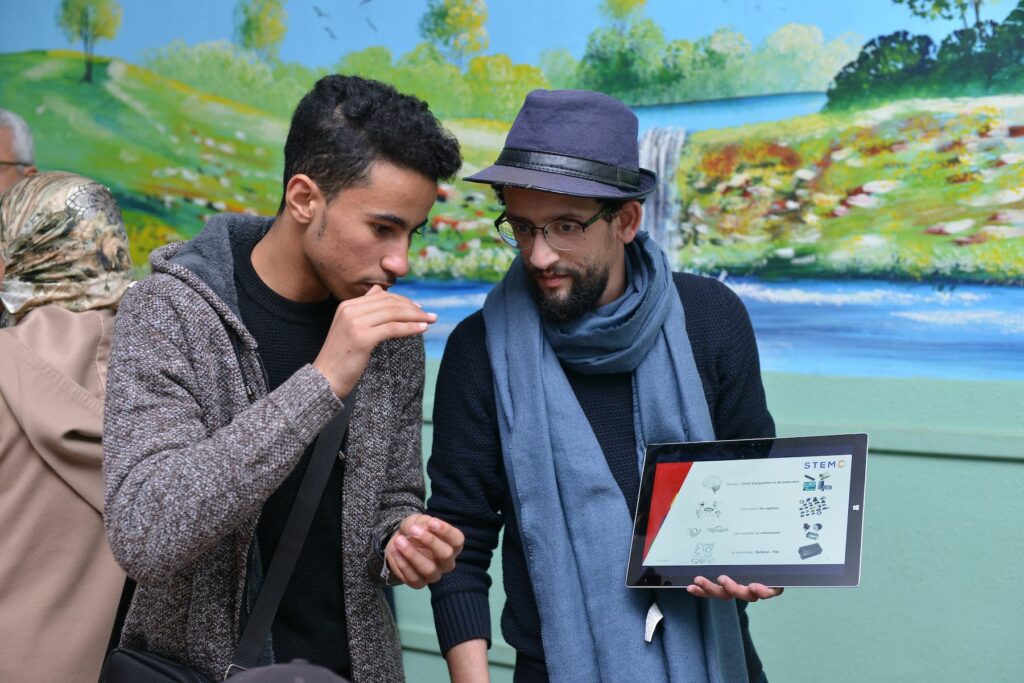By Aretha Mare
North Africa’s start-ups stand out in Africa for the number of investments attracted, scalable products built and a policy environment that is favorable to entrepreneurship and innovation. The Tunisia Start-Up Act has become a template for other countries to copy and contextualize. The North Africa (NA) region, also, is relatively endowed with a variety of funding sources for startups at each stage of entrepreneurial growth. Here are three ways North Africa’s start-ups offer hope for investment on the continent:
- Available funding
North Africa start-ups have a variety of funding sources available for the highly innovative entrepreneurs, the majority of which are venture capital funds. A sizable number of private equity finance, angel investors, non-profit impact funders, accelerators, incubators and events also chime in with funding support. In 2019 alone, a study by Ventureburn discovered that about USD$64.1-million venture capital (VC) had been released to 15 startups in North Africa. These funds targeted promising start-ups in the following sectors: fintech, mobility, clean-tech, education culture and innovative learning solutions, AI, IoT, big data, e-commerce and cyber security. Funds are also available for underserved communities in emerging markets such as the Bamboo Capital Partners Fund. Non-profits are also part of the funding mix, bringing in testing funds for start-ups that show high potential for impact. Other investors, such as Modus Capital, offer a multi-pronged approach investing USD$75 million in growth-stage start-ups in the MENA region and offering an incubation programme and co-working spaces. In 2019, a startup from Egypt, Swvl managed to raise USD $42 million and another startup, Careem, was acquired by Uber for USD$3.1 billion. InstaDeep, a Tunisian start-up using Artificial Intelligence (AI), raised USD$7 million in a Series A round.
- Geographic sweetspot
The second way is through a good use of the geographical location of North Africa, historical and cultural background harnessing its window to a diverse pool of funds and support, meant mainly for the MENA region. This makes it easier for NA start-ups to access markets in the MENA region than the rest of Africa. For example, Mubadala, a sovereign wealth fund from the United Arab Emirates released USD$250 million for MENA startups. A Venture Capital firm based out of Dubai also launched a USD$100 million fund to support start-ups in the region.
- Talent galore
The third way has to do with the deliberate and intentional efforts across the region to groom and nurture talent in young people for careers in technology and entrepreneurship. These initiatives include the Egypt STEM Schools Project (ESSP), Algiers STEAM Center and programmes run under Flat6labs and Endeavor. Such programmes compliment government efforts and contribute towards the growth of the tech-entrepreneurship ecosystem. According to Github , Morocco and Egypt are amongst the top five fastest growing developer communities in Africa. Morocco has the highest expenditure on Research and Development as a percentage of GDP at 0.71 and Egypt has the highest number of pre-seed start-ups in the region at 26.6% and, correspondingly, the highest number of founders in the MENA region at 25.7%. Graduates from abroad also bring back home the experience, connections and know-how as they launch startups and become successful entrepreneurs in NA. As examples above show, the North African start-ups that collected the most funds are technology based or technology enabled start-ups, straddling all the economies that underline the 4IR, namely the sharing, digital, carbon and circular economies.
These “three ways” – diversifying funding sources, good use of geographical location, talent grooming – represent best practice in how to “do” innovation which results in a vibrant ecosystem. However, there are a few obstacles that stand in the way of harmonizing this potential: a) the internal market remains insular and b) the flow of goods and services between North Africa and Sub-Saharan Africa needs to become more efficient. Once these challenges are addressed, the inspirations of all innovative start-ups can be fully scaled across the continent.
Learn more about the North African start-ups that will be featured at #NEF2020.
